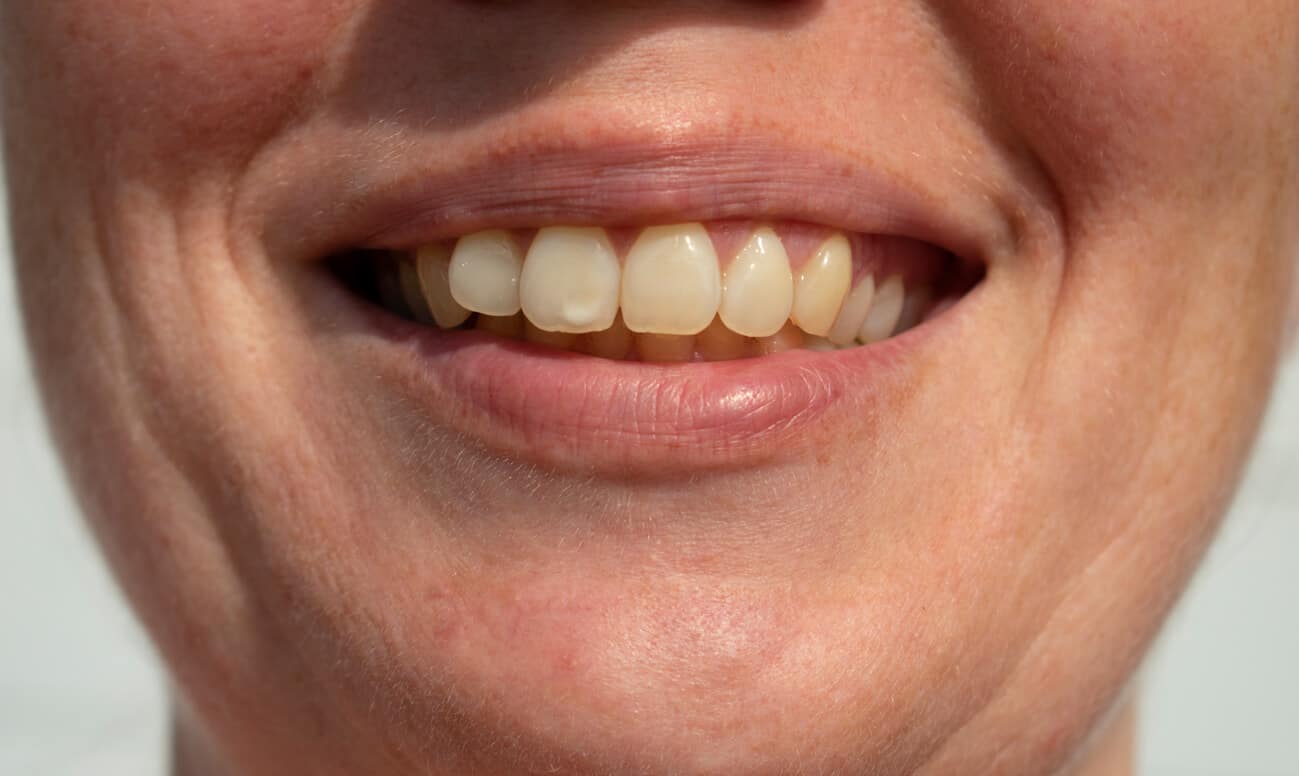-
-

ADULT ORTHODONTICS
Should You Use Mouthwash Before or After Brushing?Brushing and flossing are the foundation of a good oral hygiene routine, but mouthwash can also be a useful addition...

SELECTING DENTAL PRODUCTS
Soft Vs. Hard Toothbrush: Which One Should You Use?The toothbrush has come a long way. As the American Dental Association (ADA) notes...
-
Science & Innovation
- Oral Health and Dental Care | Colgate®
- Oral Health
- What Are Incipient Caries?


A diagnosis of tooth decay may be daunting, but if your dentist tells you that you have incipient caries, you can breathe a sigh of relief. For many years, the first sign of a cavity meant drilling and filling. Today, simple non-invasive treatments and strategies may be the best way to manage areas of early decay, preventing small problems from becoming bigger.
What Is an Incipient Lesion?
Repeated exposure to bacterial acids in your mouth eventually causes tooth enamel to demineralize, and these areas of early decay are called incipient lesions or caries. They usually occur wherever plaque has been left to accumulate on your teeth, such as around your gums and in the grooves of the molar teeth or around existing fillings. Incipient caries can either progress into the soft dentin portion of the tooth or become inactive through remineralization.
The Ohio Department of Health explains that active areas of enamel decalcification appear chalky and feel rough when your dentist examines them with a dental instrument. If a lesion has begun to heal itself, it will look shiny and feel hard and smooth.
Management of Incipient Caries
Based on current best evidence, the American Association of Dental Consultants takes the position that remineralization techniques can stop or reverse the decay process in its initial stages. The organization emphasizes that nonsurgical methods are not only cost effective, but have the advantage of preserving tooth structure.
A study published by the Journal of the American Dental Association concludes that as long as incipient caries are non-cavitated – meaning free of bacteria – topical fluoride treatments and sealant applications are the best methods of remineralization. Here's how these non-invasive remedies and a couple of others work to repair your enamel.
- Fluoride. Fluoride is a mineral that combines with the calcium phosphate in enamel to make your teeth stronger. Fluoride also replaces lost minerals, which can stop the decay process. It's found in many water supplies and toothpastes which fights cavities. For an extra boost to heal incipient decay, your dentist may suggest topical treatments of acidulated phosphate fluoride gel or varnishes.
- Sealants. Sealants are applied to the chewing surface of molars to keep food and bacteria out of the deep grooves, while also allowing remineralization to take place.
- Amorphous Calcium Phosphate. ACP, when applied to tooth enamel, stimulates enamel re-calcification. In addition, ACP increases the enamel's uptake of fluoride, enhancing fluoride's repair and strengthening abilities, according to Dental Hygiene Theory and Practice. ACP is also incorporated into gum, dental materials, cleaning pastes, whitening systems and varnishes.
- Cheese. This dairy snack may seem like an unlikely remedy, but the University of Rochester Medical Center says that the calcium and phosphorous found in cheese, milk, yogurt and other dairy products aid remineralization, especially if eaten alone or at the end of a meal.
- Saliva. Saliva, or in Tagalog, "laway", washes away food and decay-causing bacteria from your teeth. As a bonus, it contains elements of fluoride, calcium and phosphorus that repair enamel. If you want to keep the saliva flowing, chew sugarless gum or lozenges throughout the day.
What You Can Do
Luckily, there are several things you can do in the comfort of your own home to give yourself the best chance of never having to face a drill, even when diagnosed with the beginning stages of a cavity.
First off, great oral hygiene habits are a must: brush twice daily with a fluoride toothpaste, floss once per day and swish with an antimicrobial mouthwash. Visit your dentist every six months for regular cleanings. Frequent checkups will help identify cavities before they advance to a stage that requires drilling and a filling.
Another tip is to limit between-meal snacks and avoid sugary foods and drinks. The sugars and carbohydrates from foods and beverages kick off acid attacks that are harmful to your teeth.
It's never a good day when you're told you have a cavity, but if it's incipient caries, your day just got brighter. By keeping up with your home care and following your dentist's and dental hygienist's recommendations, your little cavity may just go away.
Related Products

Helping dental professionals
More professionals across the world trust Colgate. Find resources, products, and information to give your patients a healthier future










